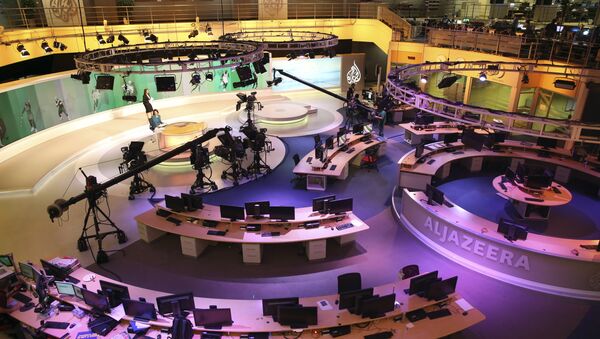DOHA (Sputnik) — On June 5, Saudi Arabia, the United Arab Emirates (UAE), Bahrain and Egypt broke off diplomatic relations with Doha and stopped all communication with Qatar, accusing it of supporting terrorism and interfering in their internal affairs. Later, the Maldives, Mauritius, and Mauritania also announced the severance of diplomatic relations. Jordan and Djibouti reduced the level of their diplomatic missions in Qatar. Senegal, Niger and Chad announced the withdrawal of ambassadors.
"They have the right to claim that Qatar is interfering in their affairs. They have the right to claim that Qatar is a destabilizing factor for the collective security of the Gulf countries. But no one has the right to interfere in our own affairs. Al Jazeera is a Qatari affair. Qatar's foreign policy on regional issues is a Qatari affair. And we are not going to negotiate on our own affairs. So, anything which relates to them is subject to negotiations. Anything not related to them is not subject to negotiations," the minister stressed, answering a question on whether Qatar was ready to close Al Jazeera, distance itself from Iran or end funding certain groups.
In addition, Doha-based Al-Jazeera satellite television channel was blocked in the UAE and its offices were closed in Riyadh and Amman. Saudi Arabia demanded Qatar to immediately change the policy and the administration of Al-Jazeera so that it does not contradict the interests of the countries of the Persian Gulf and the Arab world. Al Jazeera Acting Director General Mostefa Souag said that the channel would not change its editorial policy, despite the diplomatic crisis, describing the work of the channel as independent and professional, and noting that Al Jazeera does not interfere in the affairs of Gulf countries.


